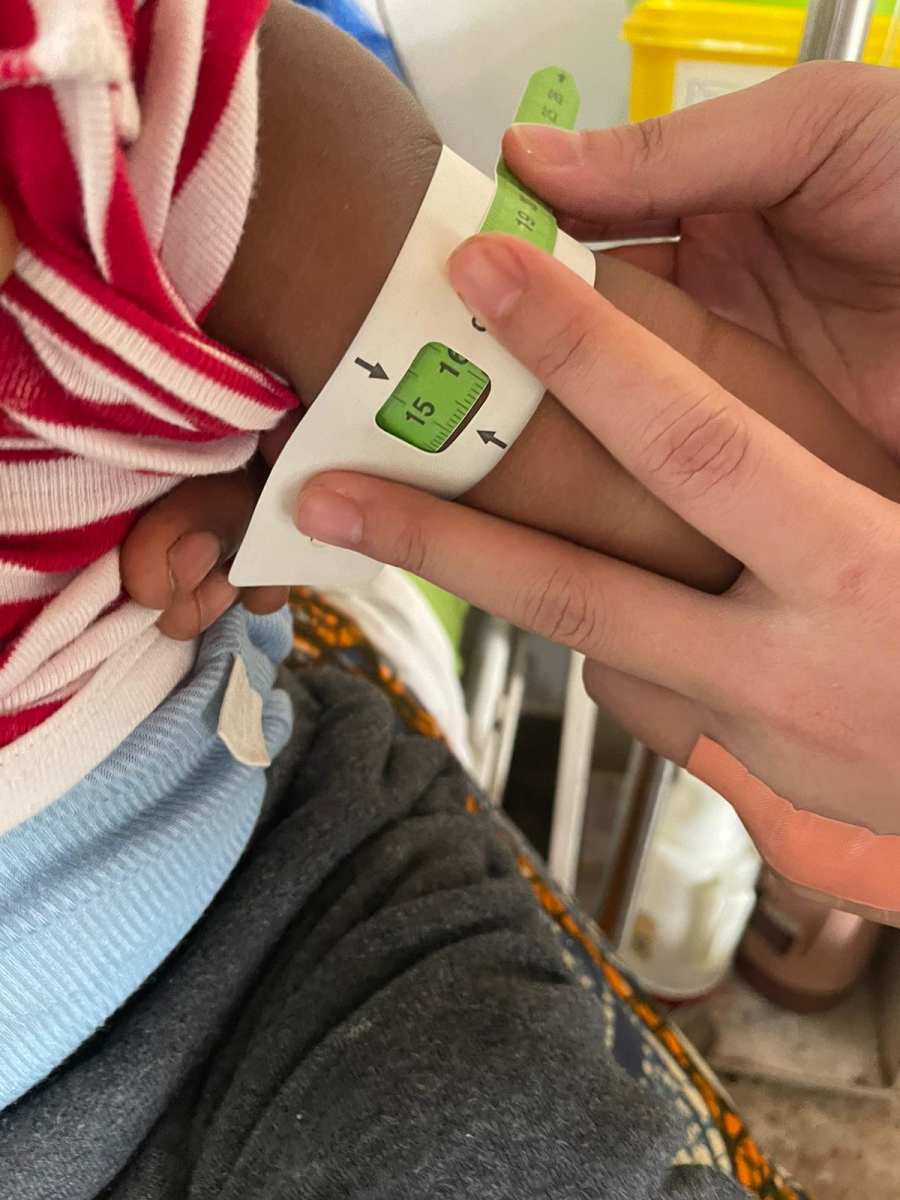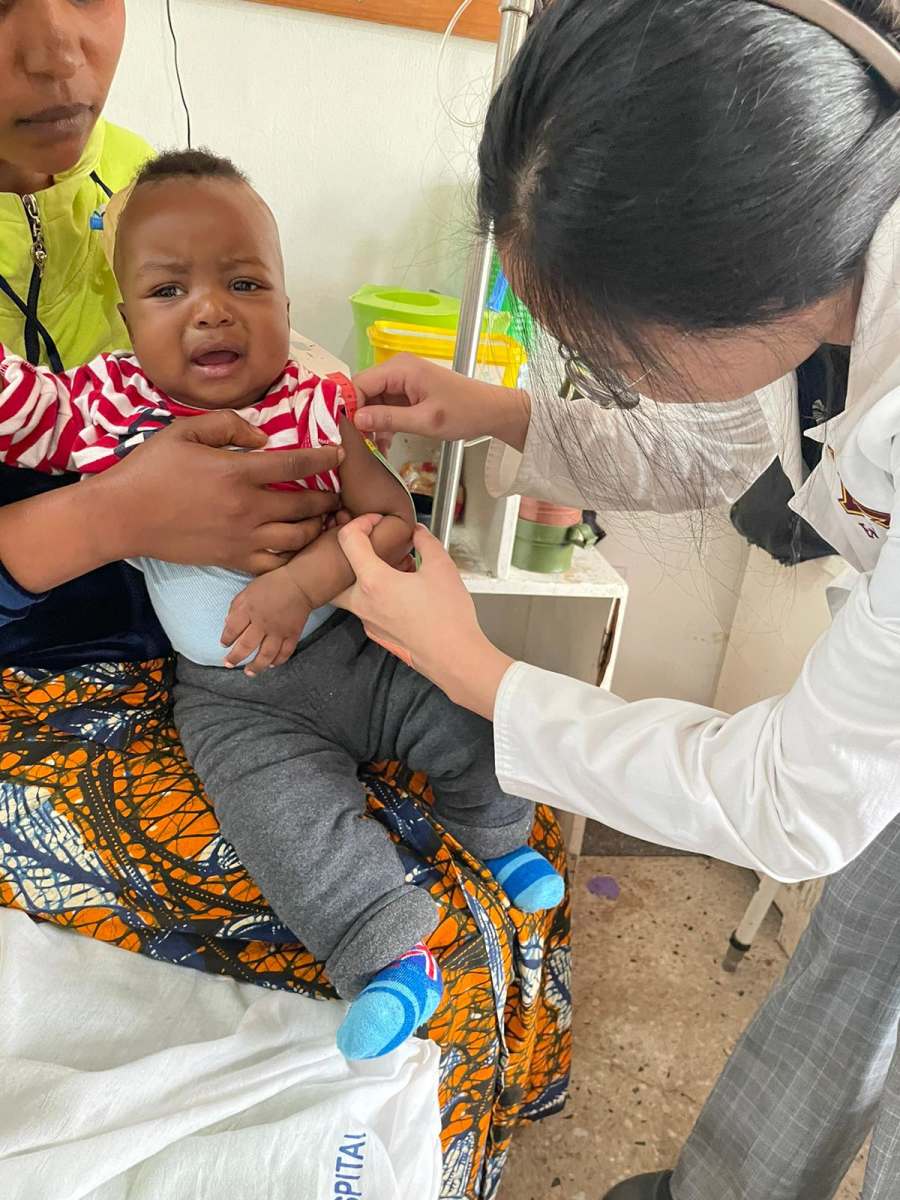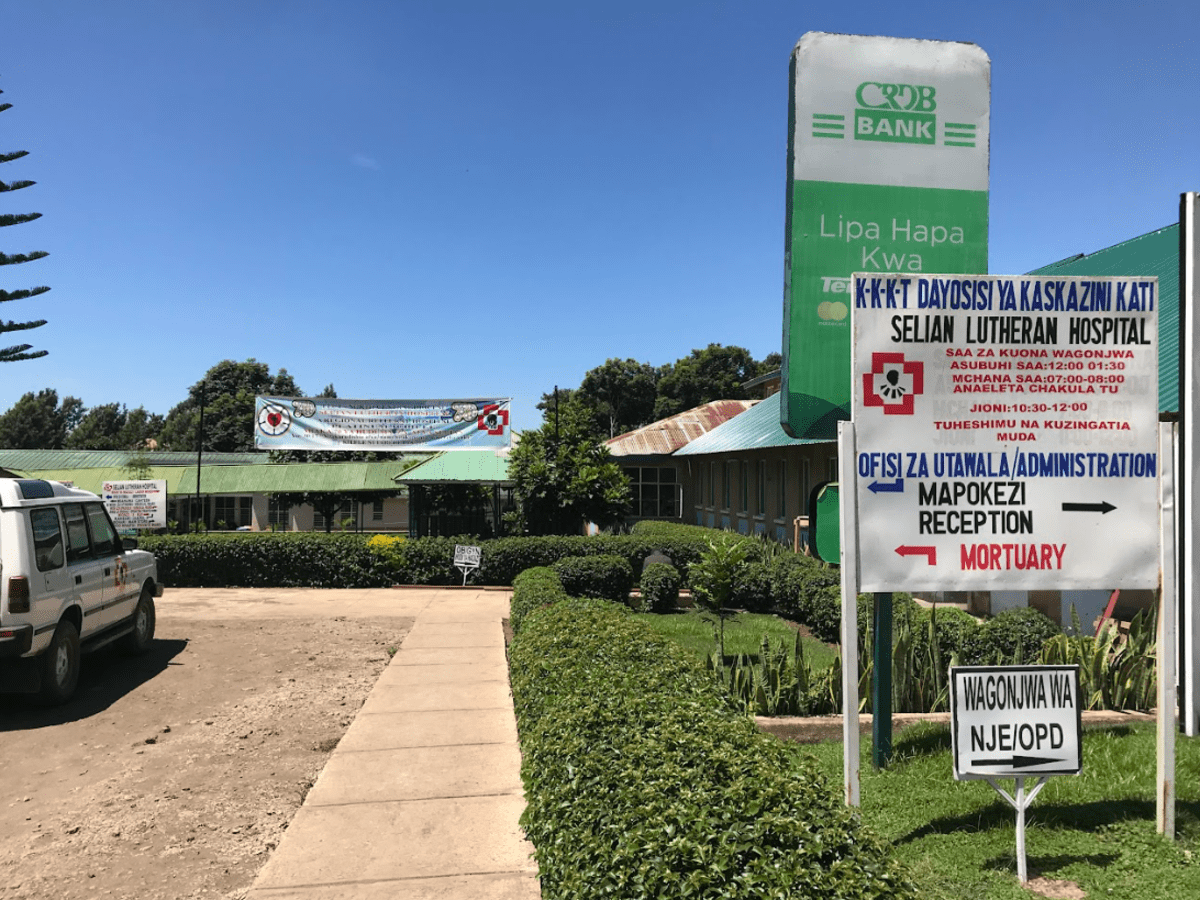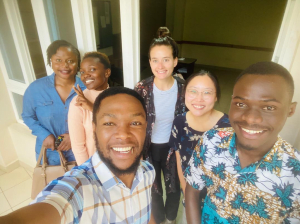I will be working with local physicians and other healthcare workers at Arusha Lutheran Medical Center, Selian Lutheran Hospital, and other local health clinics in Arusha, Tanzania. A longitudinal partnership between University of Minnesota Pediatric Residency Global Health Program and the hospitals in Tanzania who will be involved in this project has already been established. The goal of this project is to improve early identification of malnutrition in the local communities before children reach a point of requiring hospitalization for malnutrition. The local physicians in Arusha, Tanzania have reported that they are continuing to see high numbers of hospital admissions for malnutrition. This project will involve providing educational lectures in the hospitals on malnutrition, including but not limited to, its prevalence, signs and progression, and management. I will be working directly with the registrars (residents) through the didactics on malnutrition. We will also create educational pamphlets for patients and local clinicians in the community to help raise awareness on the signs of mild and moderate malnutrition so it could be addressed earlier in the outpatient setting prior to requiring a hospitalization. Finally, when meeting with the local healthcare providers we will also survey possible barriers to identifying malnutrition early on and resources the community needs to manage malnutrition once identified. We will compile a database of various community food resources to provide for the patients and families. Outside of this project I will also be working in the general pediatric wards with the local registrars in the two hospitals and engage in bidirectional learning through bedside teaching and formal didactics with general pediatric topics, including but not limited to information on malnutrition among other concerns about the pediatric patients in the hospitals.
This project aims to serve the pediatric population of Arusha, Tanzania who is at risk for malnutrition as well as the clinicians who care for these children. This population includes the local urban community of Arusha but also the rural, underserved populations including the indigenous Maasai people. Studies show that in Tanzania 14% of children under 5 years are underweight, 32% of children under 5 years are stunted, and 5% of children under 5 years are wasted. Malnutrition affects a significant portion of the pediatric population in Tanzania and many families and health care providers can benefit from improving early identification and management of malnutrition.
We expect that with the partnership created in Arusha, Tanzania, there will be a bidirectional exchange of knowledge that can improve overall how malnutrition is identified and managed in the community and within the hospitals. We hope that through this project the community providers would be able to identify malnutrition in the earlier stages and be able to provide care in the outpatient setting and ultimately decrease the need for hospitalizations for malnutrition. The local providers are going to be directly involved in this project, and there are University of Minnesota staff who permanently work in Arusha, Tanzania, along with residents from University of Minnesota who rotate in Tanzania throughout the year. Thus, we have the resources to continue and improve this project for the foreseeable future once it has been established. We hope that this project can build on the amazing work that the local providers are already providing for the pediatric community of Arusha, Tanzania, and lead to more quality improvement initiatives based on feedback from this project.










I had the opportunity to travel to Arusha, Tanzania as a part of the global health track in my pediatric residency program. This was the first time I’ve been to Tanzania and my first global health experience, but the University of Minnesota Pediatric Residency Program has a longstanding partnership with the two hospitals there (Selian Lutheran Hospital and Arusha Lutheran Medical Center). This was both a clinical and educational trip. I worked in the pediatric ward where I participated in rounds and saw patients with the local interns, registrars, and consultants (attending physicians). I also led teaching sessions with the interns in the afternoons and gave educational lectures on food allergy, anaphylaxis, and asthma during the weekly pediatric morning conferences at ALMC.
I also worked with our global health program instructor on a malnutrition project at Selian Lutheran Hospital. The registrars and pediatricians in Arusha, Tanzania identified that they are continuing to see high numbers of hospital admissions for severe acute malnutrition (SAM), so the goal of this project was to improve early identification of malnutrition before children reach the critical point of requiring hospitalization for SAM and also catch any SAM in the patients who have been admitted for other concerns. We incorporated standardized MUAC screening at the outpatient pediatric clinic in Selian Lutheran Hospital for patients 6 months to 5 years of age with confirmatory measurements with weight to height z-score if in moderate to severe MUAC range. We also started the same screening process for all inpatient admissions 6 months to 5 years of age. This project will be continued with the global health instructor on site and with the local nurses and interns. Additionally, I worked with the hospital nutritionist and participated in the malnutrition education program where we discussed with moms various types of food they can try to incorporate into their children’s diet that is nutrition dense but may still be affordable. It was rewarding to witness the impact by directly taking care of patients with SAM in the wards who otherwise may have gone home or not been placed on malnutrition protocol prior to the standardized screening process.
Working with the local interns, registrars, and consultants was one of my most memorable aspects of my month in Arusha, Tanzania. I learned so much from the resilience and compassion they showed for their patients and was impressed by how they were able to navigate through various challenges that come in managing very ill patients with limited resources. I also will remember the patients I took care of with the pediatric team for a very long time. I saw how devasting a “simple” community acquired pneumonia can be in patient with SAM and no other medical history. Conversely, I also saw how quickly some children with SAM perked back up once they were getting adequate nutrition while on the malnutrition protocol. I saw one of the patients with SAM I took care of in the wards come back 2 weeks later at the outpatient malnutrition program, and it was a delight to see her with more energy and a much bigger smile than I saw her have in any of her days in the wards. During this trip I had the opportunity to participate in bidirectional learning as part of the pediatric team and I feel that my perspectives as a physician broadened with my time in Arusha, Tanzania. I am very thankful for Doximity foundation for helping to fund this trip.